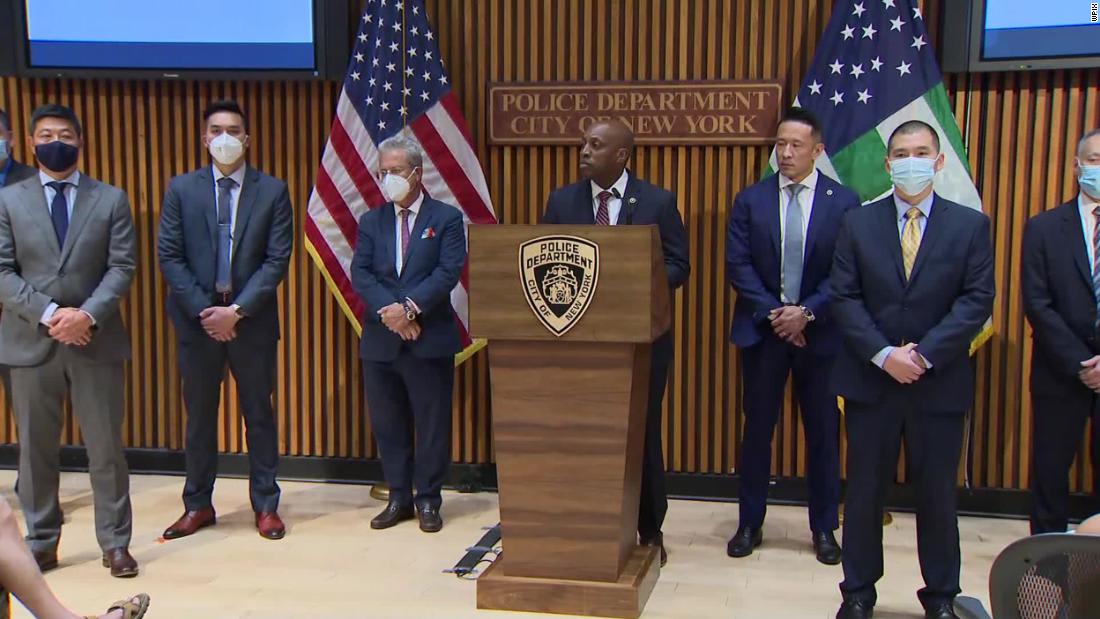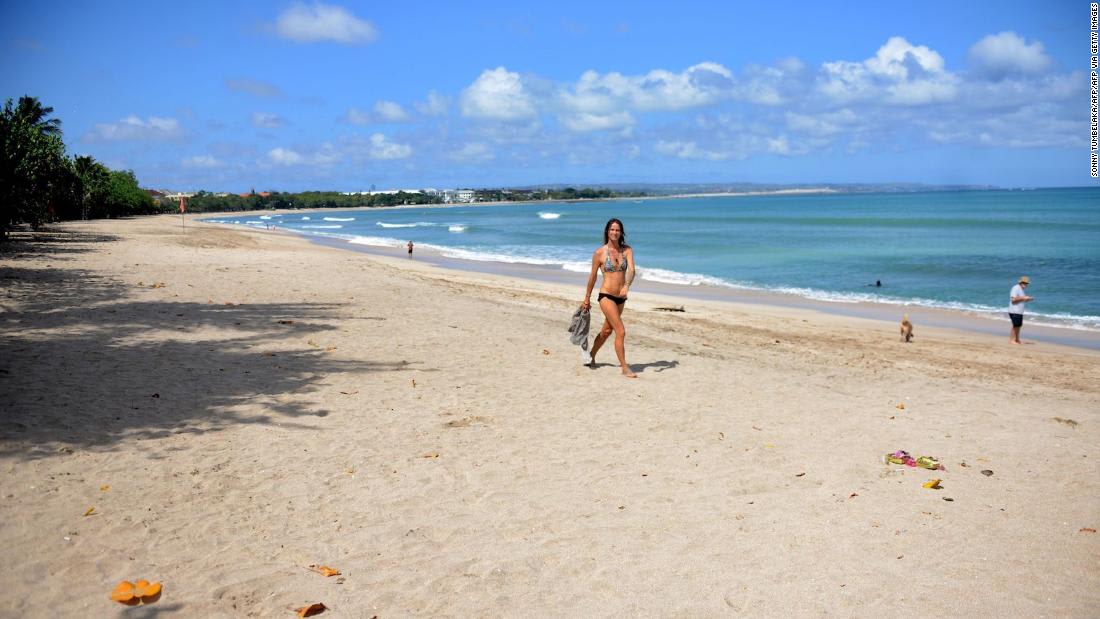Pope says Covid-19 vaccine should be for all, but especially the poor
From CNN's Livia Borghese and Sharon Braithwaite
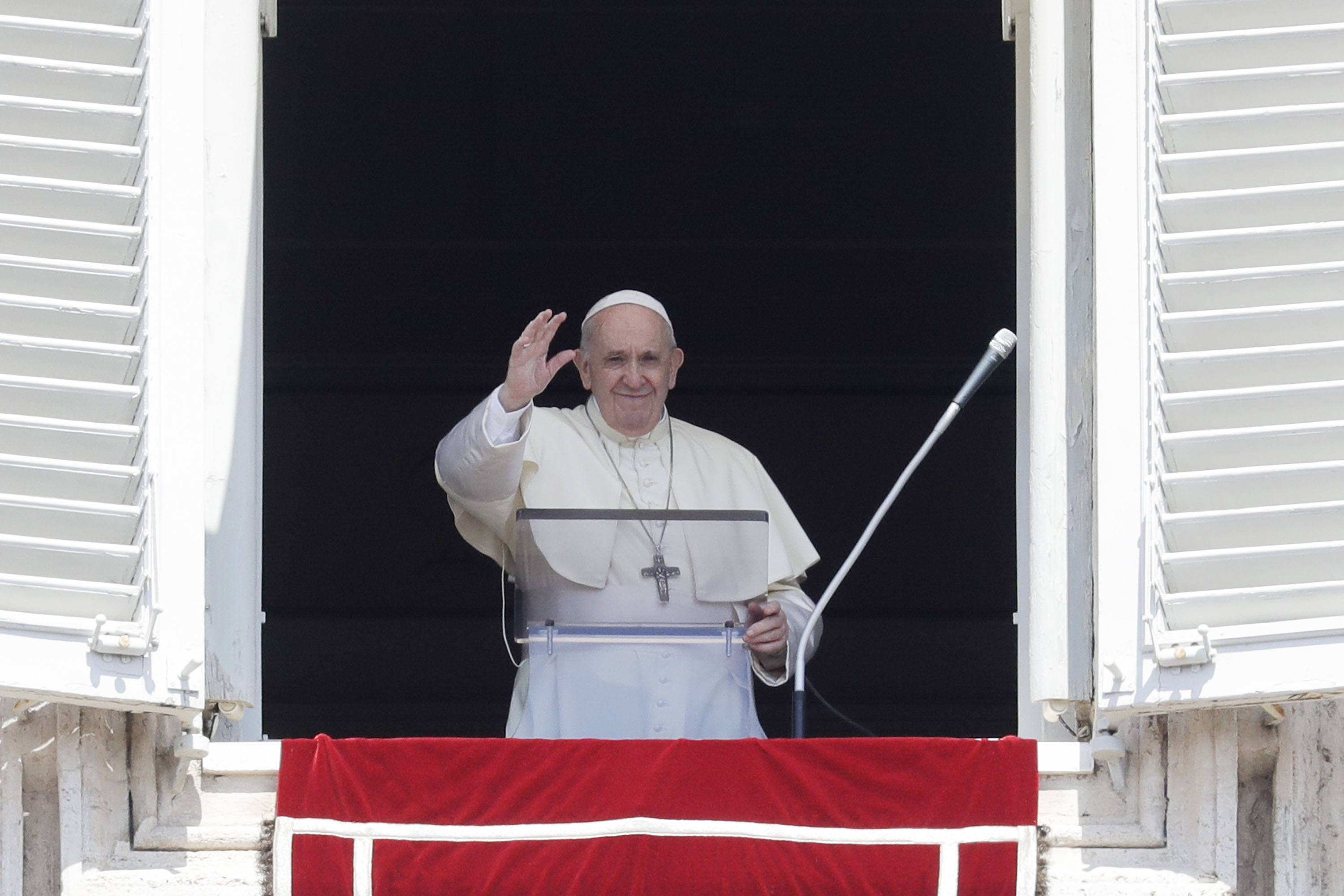 Pope Francis is pictured on August 15, as he delivers his blessing from the window of his studio overlooking St. Peter's Square, at the Vatican. Andrew Medichini/AP
Pope Francis is pictured on August 15, as he delivers his blessing from the window of his studio overlooking St. Peter's Square, at the Vatican. Andrew Medichini/APPope Francis said during his general audience on Wednesday that a coronavirus vaccine should be for everyone, particularly the poor.
“How sad it would be if access to a Covid-19 vaccine was made a priority for the richest. It would be sad if the vaccine became property of such and such nation and not universal for everyone," the Pope said.
The pandemic “has uncovered the plight of the poor and the great inequality that reigns in the world,” the Pope said, adding that the response to the pandemic is therefore "twofold."
“On the one hand, it is imperative to find the cure for a small but terrible virus, which is bringing the whole world to its knees. On the other hand, we must cure a great virus, that of social injustice, inequality of opportunity, marginalization and lack of protection for the weakest,” the pontiff said.
“We are all concerned about the social consequences of the pandemic ... Many want to return to normal (life) and resume economic activities," the Pope said, warning that “the pandemic is a crisis and from a crisis you don’t come out the same: you can come out better or worse.”
Charity and social assistance are important, the Pope stressed, “but we have to go further and find solutions for the problems that create the need of social assistance.” Today “we have the opportunity to build something different,” an economy that “doesn’t poison” society, he added.
Watch:
A risky roll call turns into a surprise moment of national unity
Analysis from CNN's Stephen Collinson
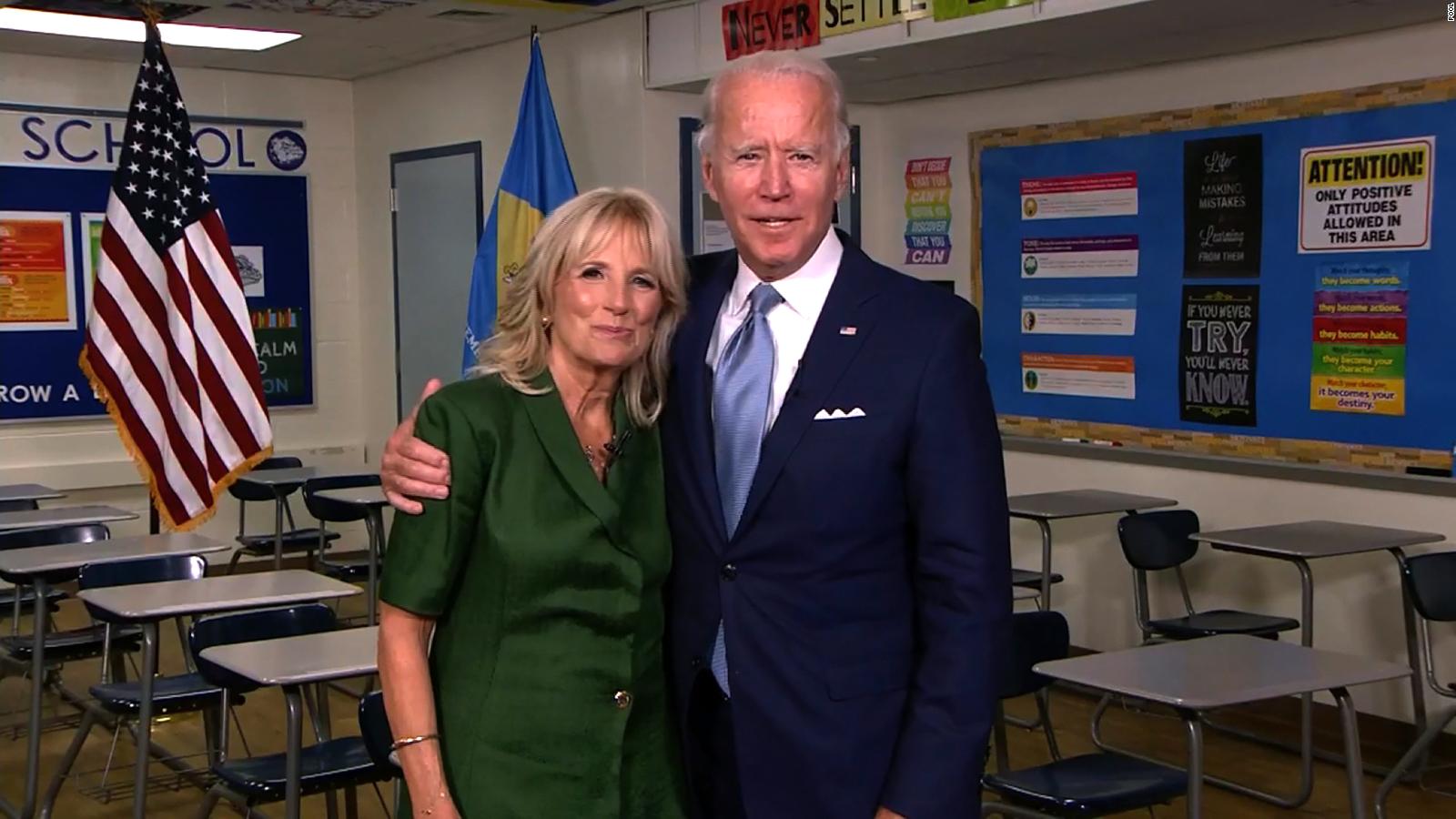 Democrat roll call officially nominates Joe Biden for president. Pool
Democrat roll call officially nominates Joe Biden for president. PoolOut of many, One.
Locked down, isolated and fearful as a pandemic fractured national bonds and the power of community, America got a sudden, startling look at itself on Tuesday night as the Democratic National Convention's virtual roll call vote whipped coast to coast and around the globe.
For a few sunny minutes, the despondency of the summer of Covid lifted during a celebratory glimpse into the country's vibrant geographic diversity, cultural breadth and enduring common purpose. A risky television production experiment that could have gone badly wrong instead turned into a pageant of national unity, and injected unusual bounce into nominee Joe Biden's basement campaign.
It was the surprise highlight of an evening showcasing the party's past and present, including two aged former presidents, the young star Rep. Alexandria Ocasio-Cortez of New York, more Republicans speaking in support of the nominee, and his wife, Jill Biden. And it might just have given the nation's flattened tourism industry the kind of publicity money can't buy.
Watch:
Here's what happened when students went to school during the 1918 pandemic
From CNN's Theresa Waldrop
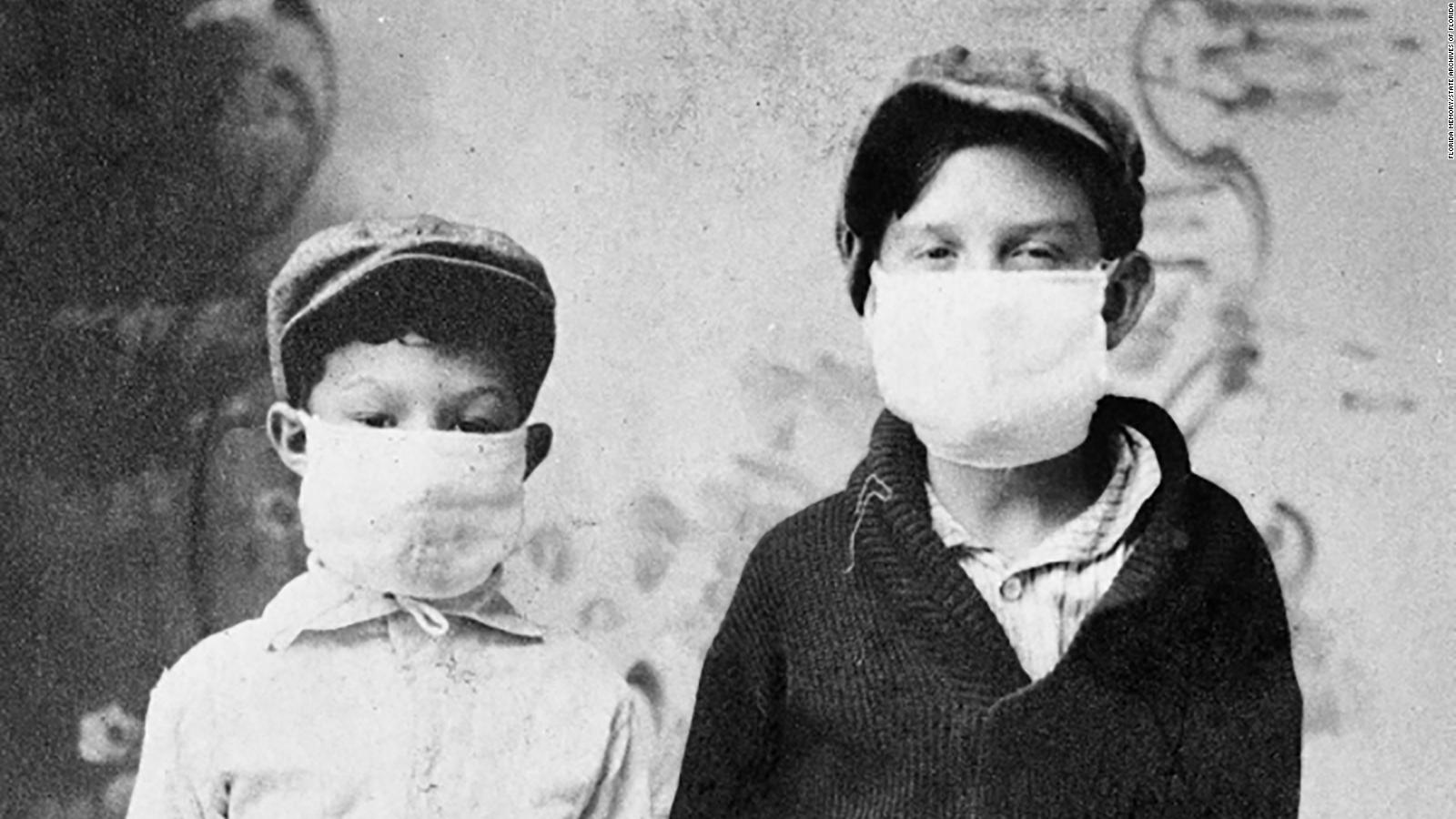 Youngsters Don Hoover and Joe Sistrunk of Starke, Florida are pictured wearing face coverings, ready for school, during the 1918 Spanish flu epidemic. Florida Memory/State Archives of Florida
Youngsters Don Hoover and Joe Sistrunk of Starke, Florida are pictured wearing face coverings, ready for school, during the 1918 Spanish flu epidemic. Florida Memory/State Archives of FloridaThis isn't the first time leaders have struggled with deciding whether to keep schools open in a pandemic.
During the influenza pandemic in 1918, even though the world was a very different place, the discussion was just as heated.
That pandemic killed an estimated 5 million people worldwide, including 675,000 Americans, before it was all over.
While the vast majority of cities closed their schools, three opted to keep them open -- New York, Chicago and New Haven, according to historians.
The decisions of health officials in those cities was based largely on the hypothesis of public health officials that students were safer and better off at school. It was, after all, the height of the Progressive Era, with its emphasis on hygiene in schools and more nurses for each student than is thinkable now.
NYPD creates Asian Hate Crime Task Force after spike in anti-Asian attacks during pandemic
From CNN's Taylor Romine
The New York Police Department announced the creation of an Asian Hate Crime Task Force after an increase in racist attacks against Asian Americans during the Covid-19 pandemic, Chief of Detectives Rodney Harrison told reporters Tuesday.
Since March 21, there have been 21 reported anti-Asian hate crimes that have resulted in 17 arrests, according to Harrison, which he said is higher than normal.
Victims have been reluctant to speak with police during investigations, he said, because of language barriers, cultural differences and fear of the police. In May, Deputy Inspector Stewart Loo proposed the creation of an anti-Asian hate crime task force, hoping that through a dedicated team they could build a better rapport with the community.
The team includes 25 Asian American officers that speak a second language, Loo said. Not having to use translators will increase investigators' ability to develop relationships with victims and ultimately lead to more cooperation, he continued. Harrison noted that four of the 17 arrests were done with the help of the task force.
"This task force has been built and will continue to build trust and understanding between the NYPD and with Asian New Yorkers," Harrison said.
The task force will be permanent, Harrison said, and other culture-based task forces may be considered in the future.
Read more:
Bali plans to reopen to international tourists in September. Plenty of obstacles stand in its way
From CNN's Theodora Sutcliffe
September 11 might be associated with tragedy in US aviation history, but it's an auspicious day on Bali's Hindu calendar.
That's why, come 9/11, authorities on this Indonesian island hope to see the return of some of the millions of international visitors who usually flock to its beaches, temples, rice fields and yoga studios. This would allow long-shuttered hotels to reopen while providing desperately needed income for tourism workers -- some of whom have earned nothing since February.
Tjokorda Oka Artha Ardana Sukawati, Bali's vice-governor and former chair of the island's hotel and restaurant association, tells CNN Travel the date remains tentative, but reopening is critical to the island's economy.
"The Covid-19 pandemic is the most devastating disaster for Bali tourism," he says. "It is much worse than the Bali bombings, both the first and the second, and worse than all the Mount Agung eruptions combined."
Hotel arrivals in July were down over 99% year on year, Sukawati noted, while the island is missing out on around 9.7 trillion rupiah ($655 million) of income every month. Tens of thousands of local workers have been officially furloughed, generally without pay. Thousands have lost formal jobs, and many workers in Bali's large informal tourist economy are desperate.
While some Balinese are able to return to their family orchards, rice fields or fishing boats and contemplate rebalancing the economy towards the traditional way of life that sustained the island for centuries, other islanders have, quite literally, nowhere to go.
Read the full story:
Biotech and pharma firms join forces to increase production of Covid-19 antibody therapy
From CNN's Jen Christensen
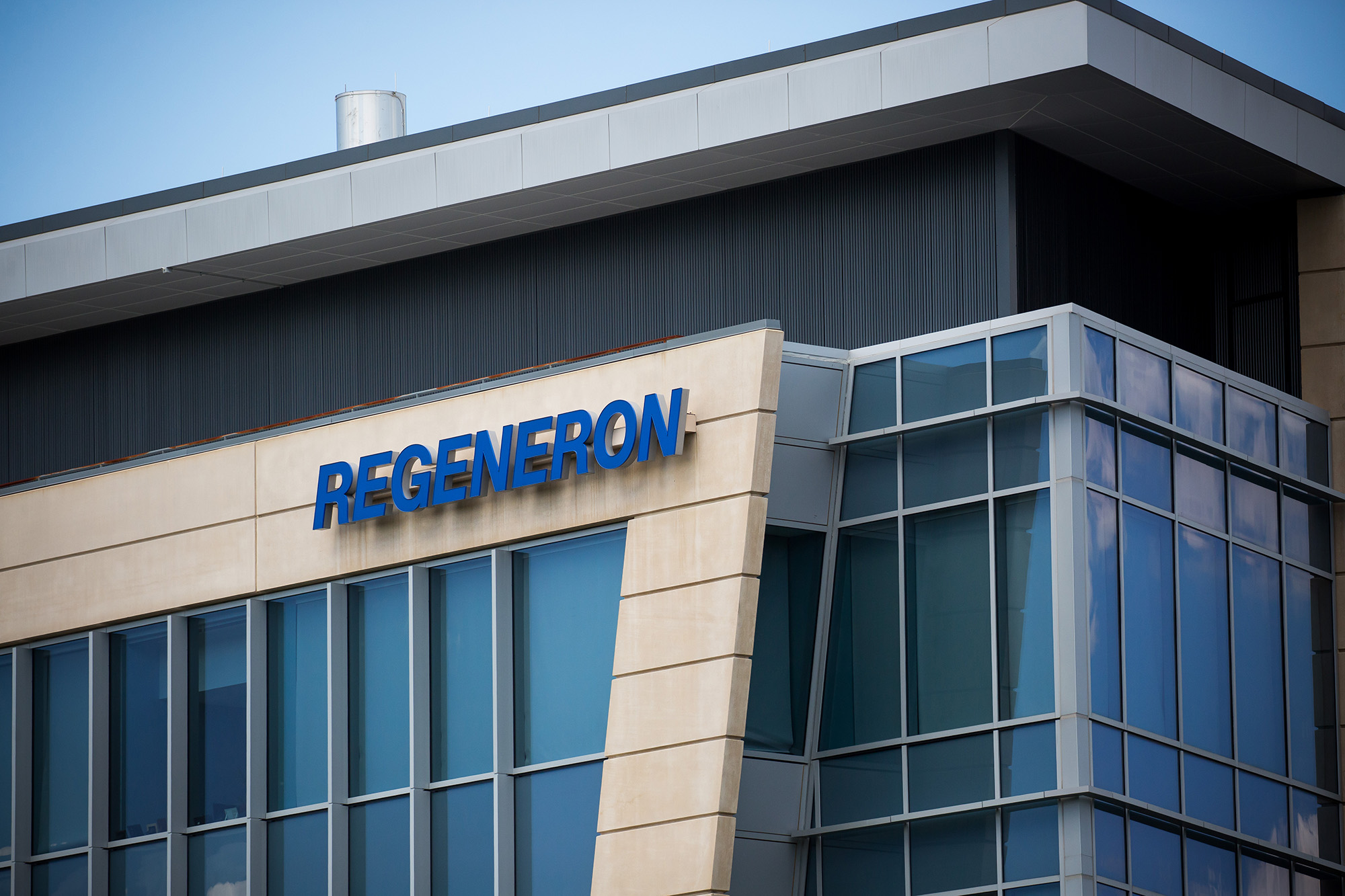 Regeneron Pharmaceuticals Inc. signage is displayed outside their headquarters in Tarrytown, New York, on June 12. Michael Nagle/Bloomberg via Getty Images
Regeneron Pharmaceuticals Inc. signage is displayed outside their headquarters in Tarrytown, New York, on June 12. Michael Nagle/Bloomberg via Getty ImagesAmerican biotech company Regeneron and Swiss pharmaceutical giant Roche are joining forces to increase the supply of Regeneron’s antibody therapy to fight Covid-19.
Under the collaboration, Regeneron is expected to increase its capacity for the antibody cocktail by at least three and a half times, the company said in a statement on Wednesday.
The agreement will also allow Roche to distribute the antibody cocktail outside of the United States once it is approved for distribution in those markets.
Both Roche and Regeneron will manufacture the antibody therapy, which was originally created by Regeneron scientists. The companies will jointly fund and carry out the ongoing Phase 3 trial and the Phase 1 safety studies.
What is the therapy? The treatment is a double antibody cocktail called REGN-COV2.
Antibodies are proteins the body naturally makes to protect itself from a threat like Covid-19. Scientists combed through thousands of antibodies to figure out which ones fight the novel coronavirus most effectively.
In this case, Regeneron's scientists picked two antibodies, scaled them up and put them into a medicine that it hopes can be used to treat symptoms and possibly even work as preventative protection.
The drug is currently in late-stage clinical trials. Regeneron said in its shareholder call last quarter that it expects results from the trials sometime in September.
If the trials show positive results, Roche will be largely responsible for getting regulatory approval to distribute the drug internationally, and for carrying out any extra studies that might be required outside the US.
China reports 17 new Covid-19 cases
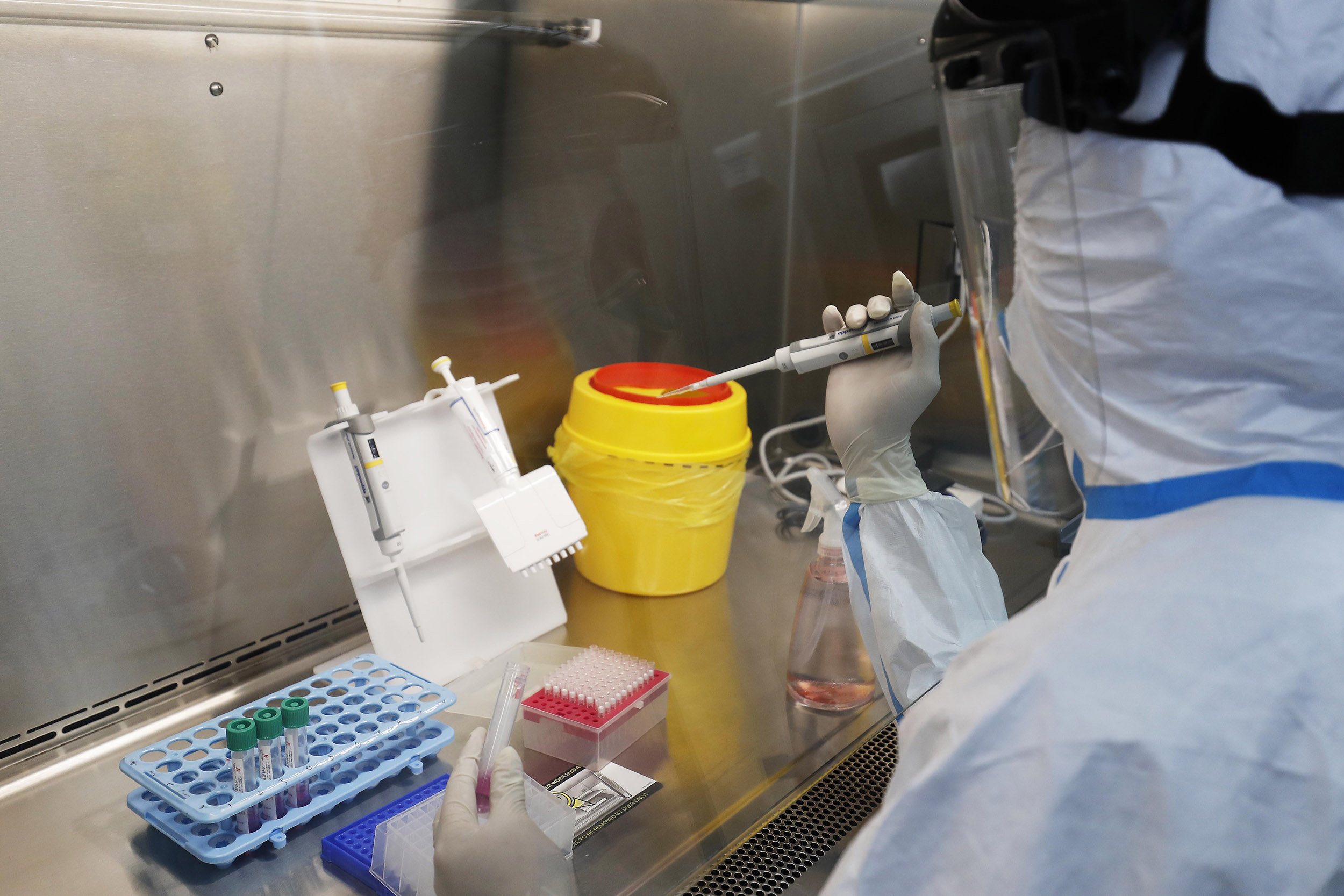 A customs officer wearing a protective suit works in a mobile Covid-19 testing laboratory at Shanghai Pudong International Airport on August 7, in Shanghai, China. Yin Liqin/China News Service/Getty Images
A customs officer wearing a protective suit works in a mobile Covid-19 testing laboratory at Shanghai Pudong International Airport on August 7, in Shanghai, China. Yin Liqin/China News Service/Getty ImagesChina recorded 17 new symptomatic Covid-19 cases and no new deaths on Tuesday, according to the country's National Health Commission.
These cases were all imported from abroad, and were detected in the cities of Shanghai and Zhenjiang, and the provinces of Guangdong, Shandong and Shaanxi.
The NHC also reported 14 confirmed asymptomatic cases, which China counts separately. Of these, 13 were imported, and one was locally transmitted.
Cuba plans clinical trials of potential Covid-19 vaccine
From CNN’s Patrick Oppmann in Havana
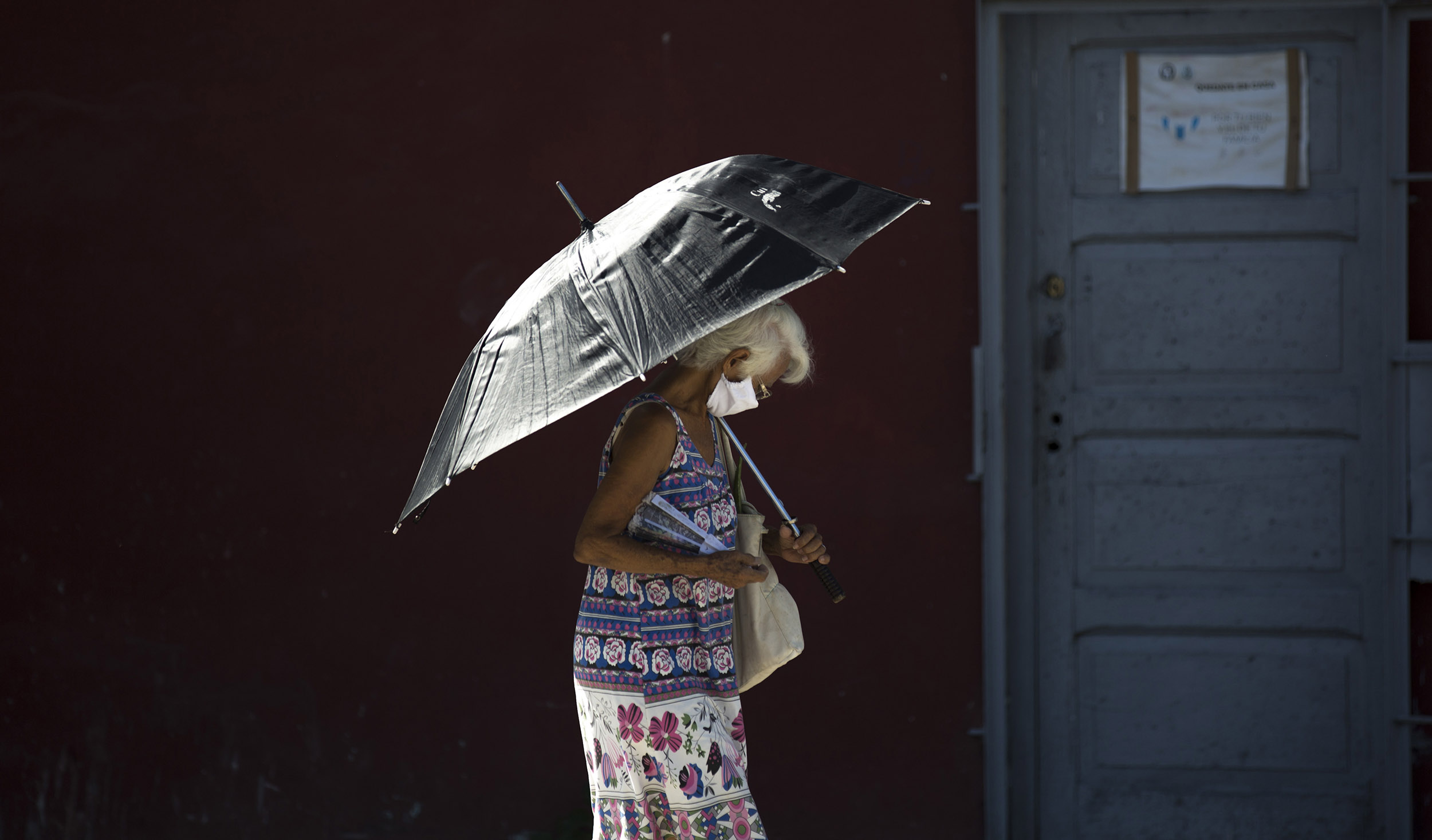 A pedestrian wearing a face mask amid the coronavirus pandemic uses a parasol in Havana, Cuba, on August 10. Ismael Francisco/AP
A pedestrian wearing a face mask amid the coronavirus pandemic uses a parasol in Havana, Cuba, on August 10. Ismael Francisco/APCuban researchers will begin clinical trials of a potential vaccine against the novel coronavirus next week, according to a report from the state-run Prensa Latina news service released on Tuesday.
The potential vaccine, named “Sovereignty 01”, will be tested on 676 people between the ages of 19 and 80.
The trials will be carried out between August 24 and January 11, with the results available in February 2021, Prensa Latina reported.
On Monday, Cuban state media showed images of Cuban President Miguel Diaz-Canel meeting with vaccine researchers.
A 60-year-old US trade embargo makes it difficult for many countries to partner with Cuba or even sell medications to the island. This vaccine is being developed by Cuban government researchers at the Finlay Institute in Havana.
Indigenous Brazilians re-block key highway in protest over Covid-19 response and land invasion
From CNN's Thaize Oliveira in Rio de Janeiro and Rodrigo Pedroso in Sao Paulo
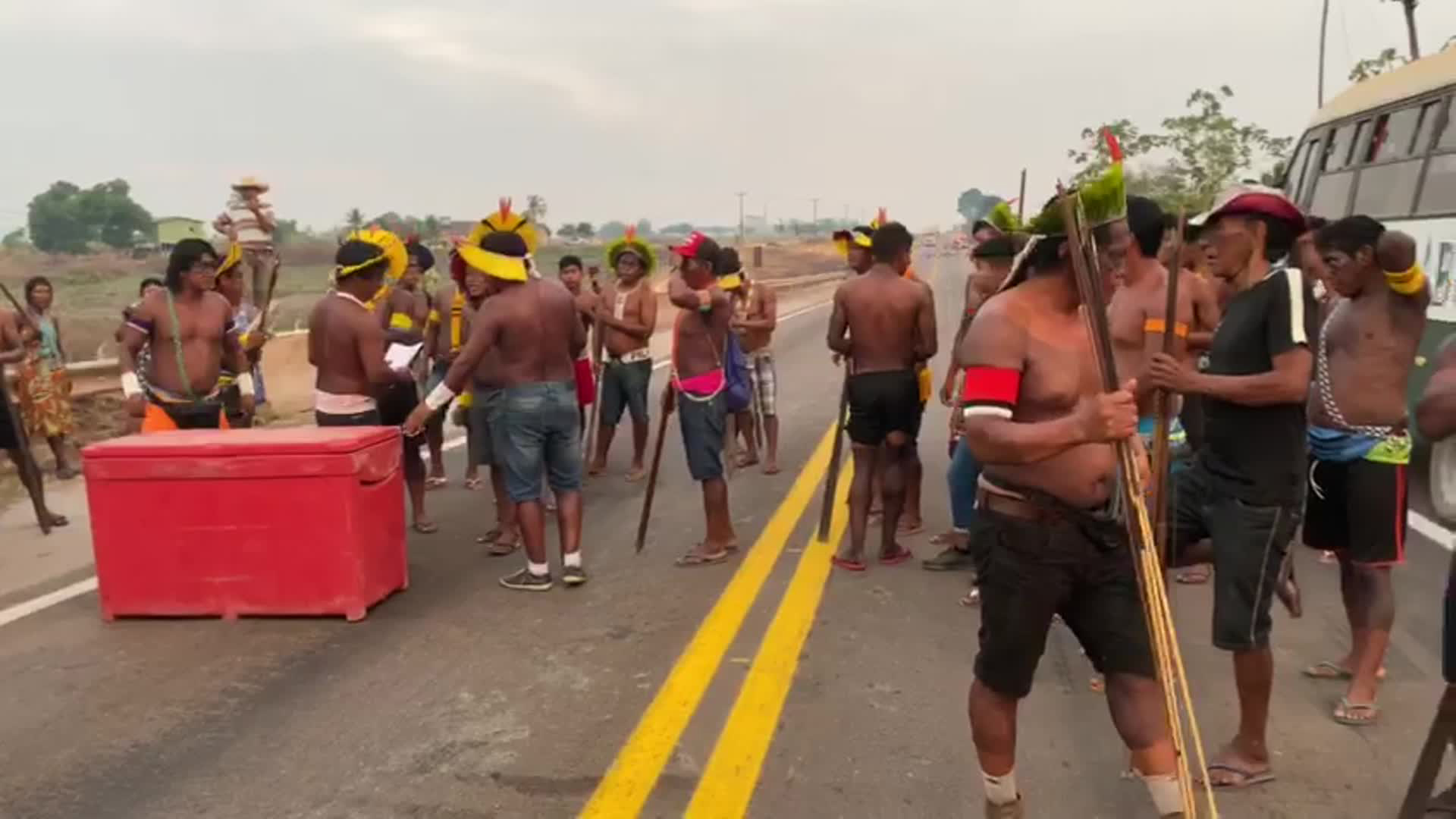 The Kayapó Mekrãgnotire people re-block a key highway in protest over the Brazilian government's Covid-19 response and land invasion. Kabu Institute
The Kayapó Mekrãgnotire people re-block a key highway in protest over the Brazilian government's Covid-19 response and land invasion. Kabu InstituteIndigenous Brazilian protesters defied a court order on Tuesday and blocked a key highway for the second time in 24 hours, after reopening it with federal police earlier in the day.
The Kayapó Mekrãgnotire people first blocked a major highway near the city of Novo Progresso in the northern state of Para on Monday, demanding health assistance, medical supplies and food to fight the Covid-19 pandemic.
They also demanded the end of deforestation and illegal activities in their territories, according to a statement obtained by CNN from the Kabu Institute, an NGO created to manage indigenous villages and inspect the region's forests.
Later that evening, a federal judge ordered the protesters to clear the roadblocks or face a daily fine of 10,000 reais ($1,800)
By Tuesday morning, the indigenous protesters reopened the highway, but warned if the government failed to engage in talks regarding their demands, they would block it again.
Brazilian Representative Joenia Wapichana released an official letter to Brazil’s Vice President Hamilton Mourão on Tuesday, urging him to open up a dialogue with the Kayapó Mekrãgnotire people regarding their demands.
Why they chose the highway: Indigenous leaders argue that proximity to the road brought coronavirus to their villages, the Kabu Institute told CNN Monday.
The first coronavirus cases among the Kayapó Mekrãgnotire occurred as a result of their contact with urban populations and the presence of illegal miners in their reserves.
At least 21,000 indigenous people in Brazil have been infected with Covid-19 and more than 600 have died, according to the Articulation of Indigenous Peoples of Brazil (APIB).

 5 years ago
550
5 years ago
550 